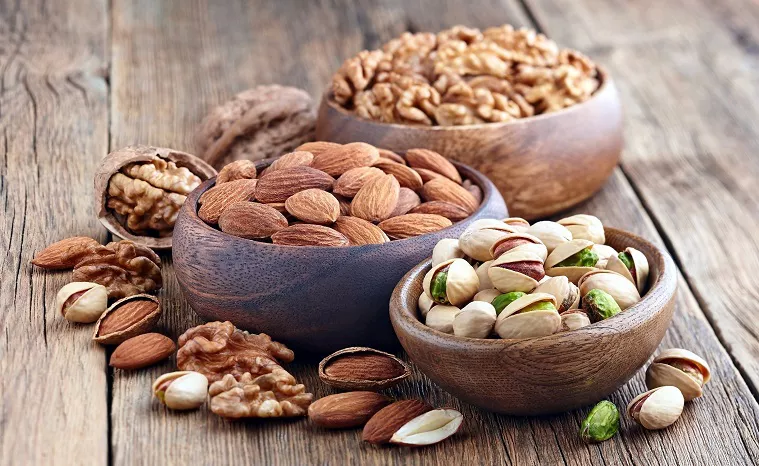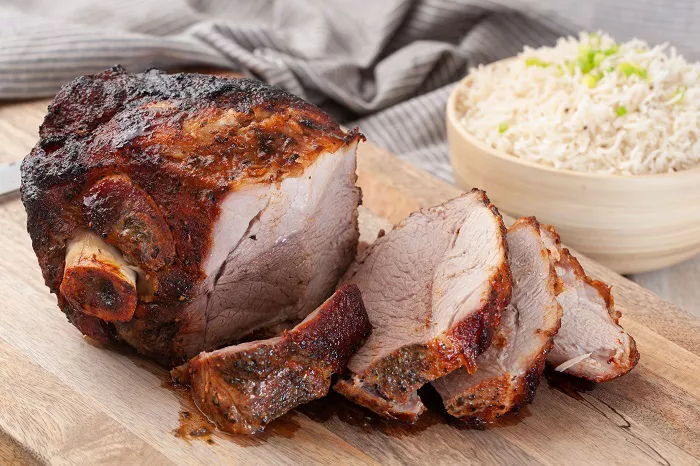When it comes to healthy snacking, nuts often top the list of go-to options. They are packed with nutrients, healthy fats, and are touted as a wholesome addition to any diet. However, not all nuts are created equal, and there are certain varieties that might not be the best choice for everyone. In this article, we’ll explore the world of nuts and delve into which ones you should approach with caution, backed by research and expert advice.
1. Peanuts:
The Misleading Legume
Peanuts are perhaps the most deceptive nut of all, mainly because they aren’t technically nuts. They belong to the legume family, and this distinction carries some consequences. Peanuts are more prone to aflatoxin contamination, a naturally occurring toxin produced by certain molds. Long-term exposure to aflatoxins can increase the risk of liver cancer and other health issues. If you’re a fan of peanuts, consider consuming them in moderation and ensure they are properly stored to minimize mold growth.
2. Cashews:
Delicious but High in Calories
Cashews have a reputation for being delicious and creamy, making them a popular choice for snacking and cooking. However, they are among the highest-calorie nuts, with roughly 157 calories per ounce. While they provide healthy fats, vitamins, and minerals, overindulgence can lead to excessive calorie intake, potentially contributing to weight gain if not balanced within your diet.
3. Macadamia Nuts:
Rich in Fats
Macadamia nuts are praised for their rich, buttery flavor and healthy monounsaturated fats. However, this also means they are calorie-dense. If consumed excessively, they can contribute to weight gain. Moreover, while monounsaturated fats are generally considered healthy, consuming too much of any type of fat can be detrimental to your overall health. Stick to moderate portions to reap the benefits without overloading on calories.
4. Pecans:
High in Omega-6 Fatty Acids
Pecans are nutrient-rich and contain several essential vitamins and minerals. However, they are particularly high in omega-6 fatty acids, which, when consumed in excess, can upset the balance of omega-3 to omega-6 fatty acids in your diet. An imbalance in these fats can contribute to inflammation and increase the risk of chronic diseases. To maintain a healthy balance, consume pecans in moderation and ensure you’re getting enough omega-3 fatty acids from sources like fish and flaxseeds.
5. Brazil Nuts:
The Selenium Conundrum
Brazil nuts are unique in their exceptionally high selenium content. While selenium is an essential mineral, consuming too many Brazil nuts can lead to selenium toxicity, a condition known as selenosis. Symptoms include nausea, diarrhea, hair loss, and even more severe health issues in extreme cases. The recommended intake of Brazil nuts is limited to just a few per day to avoid these potential health risks.
6. Almonds:
A Nutritional Powerhouse
Unlike some of their nutty counterparts, almonds are a nutritional powerhouse. They are rich in fiber, protein, and an array of vitamins and minerals. However, the key here is moderation. Overconsumption of almonds can lead to excess calorie intake. Stick to recommended serving sizes to enjoy the health benefits without the risk of excessive calorie intake.
In conclusion, while nuts are undeniably nutritious and make for a convenient and satisfying snack, it’s crucial to be mindful of your choices. Not all nuts are created equal, and some may have drawbacks when consumed excessively.
FAQs related to the topic “What Are the Worst Nuts to Eat?”
Q1: Are all nuts equally healthy?
A1: No, not all nuts are equally healthy. While nuts, in general, offer various health benefits, some nuts are higher in calories, fats, or other components that may not be suitable for everyone. It’s important to choose nuts wisely and consume them in moderation.
Q2: Why are peanuts considered one of the worst nuts to eat?
A2: Peanuts are often considered one of the worst nuts because they are not technically nuts; they belong to the legume family. This means they are more susceptible to aflatoxin contamination, which can be harmful when consumed over a long period.
Q3: What’s the concern with cashews if they are high in calories?
A3: Cashews are indeed high in calories, which can contribute to weight gain if consumed excessively. While they offer various nutrients, including healthy fats, it’s essential to be mindful of portion sizes to avoid excessive calorie intake.
Q4: Can macadamia nuts be part of a healthy diet?
A4: Yes, macadamia nuts can be part of a healthy diet when consumed in moderation. They provide healthy monounsaturated fats and essential nutrients. However, due to their calorie density, it’s advisable to enjoy them in controlled portions.
Q5: Why should I be cautious with pecans?
A5: Pecans are high in omega-6 fatty acids. An excessive intake of omega-6 fatty acids, when not balanced with omega-3s, can lead to inflammation and increase the risk of chronic diseases. It’s important to include a variety of nuts in your diet to maintain a healthy balance.
Q6: What are the health risks associated with consuming too many Brazil nuts?
A6: Brazil nuts are exceptionally high in selenium, and consuming too many of them can lead to selenium toxicity, known as selenosis. Symptoms can range from nausea and diarrhea to more severe health issues. It’s recommended to limit Brazil nut consumption to avoid these risks.
Q7: Are almonds a safe choice for snacking?
A7: Almonds are considered a safe choice for snacking due to their nutritional content. They are rich in fiber, protein, and essential vitamins and minerals. However, like all nuts, it’s important to consume them in moderation to prevent excess calorie intake.
Q8: How can I incorporate nuts into a balanced diet?
A8: You can incorporate nuts into a balanced diet by including them as a snack or adding them to various dishes. Opt for unsalted and dry-roasted nuts for a healthier option. Be mindful of portion sizes, and consider consulting a nutritionist for personalized dietary recommendations.
Q9: Can I still enjoy nuts if I have dietary restrictions or allergies?
A9: If you have dietary restrictions or allergies, it’s essential to choose nuts that are safe for your specific dietary needs. There are various nut alternatives available, such as seeds and dried fruits, that can provide similar nutritional benefits.
Q10: What’s the key takeaway regarding nuts and their consumption?
A10: The key takeaway is that nuts are a nutritious addition to your diet, but it’s essential to choose them wisely and consume them in moderation. Being informed about the potential drawbacks of certain nuts and maintaining a balanced diet is key to enjoying their health benefits while minimizing risks.




















